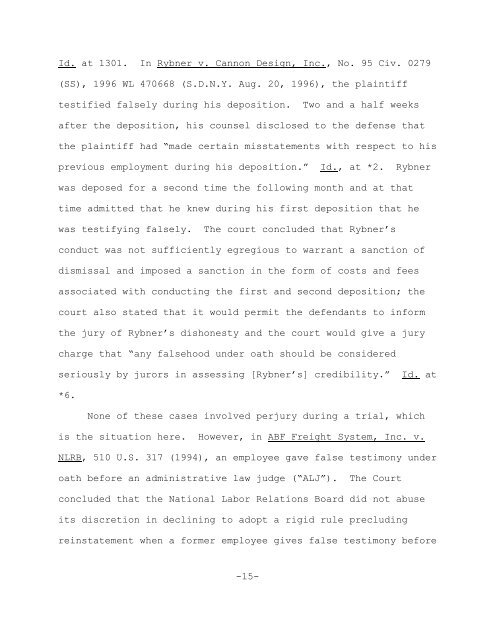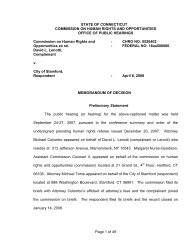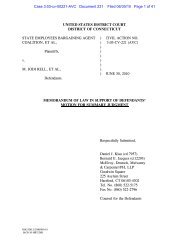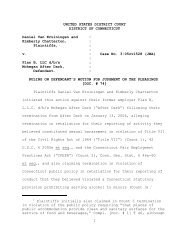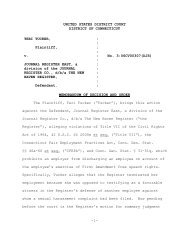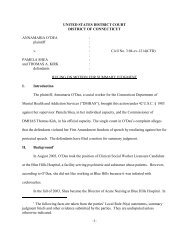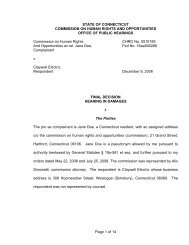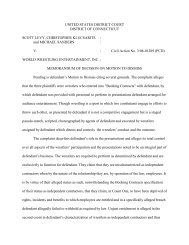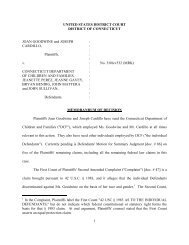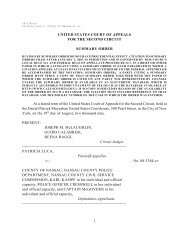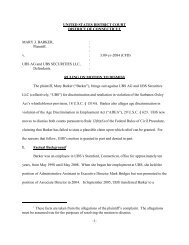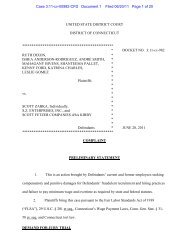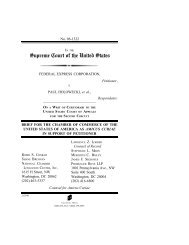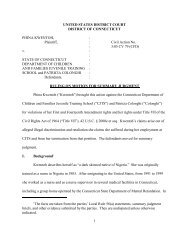Radecki v. GlaxoSmithKline - Connecticut Employment Law Blog
Radecki v. GlaxoSmithKline - Connecticut Employment Law Blog
Radecki v. GlaxoSmithKline - Connecticut Employment Law Blog
You also want an ePaper? Increase the reach of your titles
YUMPU automatically turns print PDFs into web optimized ePapers that Google loves.
Id. at 1301. In Rybner v. Cannon Design, Inc., No. 95 Civ. 0279(SS), 1996 WL 470668 (S.D.N.Y. Aug. 20, 1996), the plaintifftestified falsely during his deposition. Two and a half weeksafter the deposition, his counsel disclosed to the defense thatthe plaintiff had “made certain misstatements with respect to hisprevious employment during his deposition.” Id., at *2. Rybnerwas deposed for a second time the following month and at thattime admitted that he knew during his first deposition that hewas testifying falsely. The court concluded that Rybner’sconduct was not sufficiently egregious to warrant a sanction ofdismissal and imposed a sanction in the form of costs and feesassociated with conducting the first and second deposition; thecourt also stated that it would permit the defendants to informthe jury of Rybner’s dishonesty and the court would give a jurycharge that “any falsehood under oath should be consideredseriously by jurors in assessing [Rybner’s] credibility.” Id. at*6.None of these cases involved perjury during a trial, whichis the situation here. However, in ABF Freight System, Inc. v.NLRB, 510 U.S. 317 (1994), an employee gave false testimony underoath before an administrative law judge (“ALJ”). The Courtconcluded that the National Labor Relations Board did not abuseits discretion in declining to adopt a rigid rule precludingreinstatement when a former employee gives false testimony before-15-


